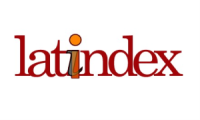Experience using inverted classroom in elective subject I, in the automatic engineering course
Abstract
The fourth industrial revolution has a strong impact on education and although the initial changes belong more to a purely technological field, the transformations they introduce are directly reflected in the behaviors of society and in the alteration of labor profiles. Faced with this change, Education 4.0 implies a paradigm shift since it is an educational proposal that tries to adapt to the new reality, characterized by connectivity and technology and focuses on the skills that students need to function daily and in their Laboral future. The objective is to present the results obtained in the subject with the application of the Flipped Classroom learning strategy. The inductive-deductive, historical-logical, synthetic analytical and complexity paradigm were used as theoretical methods; the student survey as an empirical method and statistical methods for processing the results of the surveys and the analysis carried out showed that prioritizing systematic evaluation, giving weight to teamwork, the ideas they contribute, the way they are presented and defended is essential to obtain the desired objectives in the training process. As a result, the flipped classroom is used as a learning strategy that achieves a successful link between the use of technology and instructional processes, based on the detection of the students' learning needs.
Downloads
References
[3] Díaz, F. (1997). Teaching strategies for meaningful learning. Thresholds. Mexico.
[4] Bergmann, J. and Sams, A. (2014). Flip Your Classroom: Reach Every Student in Every Class Every Day. USA: International Society for Technology in Education.
[5] Johnson, L., Adams Becker, S., Estrada, V. & Freeman, A. (2015). NMC Horizon Report: 2015 Higher Education Edition. Austin, Texas: The New Media Consortium.
[6] Hernández R., Fernández C. and Baptista, P. (2018). Investigation methodology. Mexico: Mc Graw-Hill.
[7] Linares, M.P. and Santovenia, J.R. (2013). Experiences and evaluations in the implementation of the Open Journal System editorial manager: Information Sciences magazine. Havana, Cuba: University Editorial.
[8] Portuondo, R. (2006). Pedagogy from a complex approach. An approximation. Memories of the University Congress 2006. City of Havana, Cuba.
[9] García, I. (2018). Informed consent; an essential action in medical research. Cuban Stomatology Magazine [Internet]. 2009 [cited May 20, 2018]; 46(1): [9 p.]. Available at: http://scielo.sld.cu/scielo.php?script=sci_arttext&pid=S00347507200900010011.
[10] Knapp & Glenn (1996). Contast Conventional or Traditional with a Reform or Restructured School.
[11] Espinosa, T., Araujo, I.S. and Veit, E.A. (2016). Flipped Classroom: Innovating Physics Classes Published in Portuguese in the journal Physics na Escola. Volume 14, No. 2, pp. 4-13.
Copyright (c) 2024 ITEGAM-JETIA

This work is licensed under a Creative Commons Attribution 4.0 International License.











